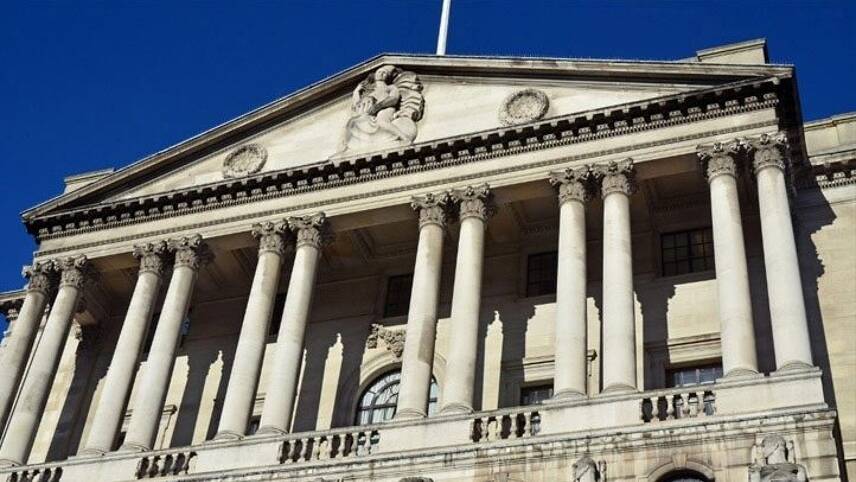Register for free and continue reading
Join our growing army of changemakers and get unlimited access to our premium content

Image: George Rex
The Bank first announced its intention to introduce a mandatory and uniform stress test regime for the sector back in 2019 and the delivery has progressed to the original timeline in spite of Covid-19.
Published today (8 June), the new guidance confirms that the stress tests will apply to 19 of the UK’s largest financial firms in the first instance, regarding the end-2020 balance sheet. These firms will be required to disclose climate-related risks to their portfolios across the axis of physical risk and transition risk, in three scenarios.
The chosen scenarios have been developed by the Network for Greening the Financial System (NGFS) and build upon by the Bank of England. They cover no policy action on climate globally; early movement towards net-zero by 2050 at the latest and late action towards net-zero. Each scenario comes with a 30-year projection. In the best-case scenario, the global temperature increase is capped to 1.8C by 2050. In the worst-case scenario, the increase exceeds 3.3C.
For each scenario, firms will need to quantify potential risk in financial terms across both managed assets and other liabilities. They will also need to complete a qualitative questionnaire outlining senior executives’ own views on the risks and their plans for reducing them. Firms should additionally outline how their plans stack up against those of similar competitors.
The new stress tests should be a “learning exercise” for the first participants, the Bank of England said in a statement, enabling them to increase in-house knowledge of climate risk processes, while enabling the Bank itself to fine-tune requirements ahead of a wider rollout. The results of this first round of disclosures will be published next May.
“Today’s exercise will help us size the risks from climate change for both the largest banks and insurers as well as the financial system as a whole,” Bank of England Governor Andrew Bailey said.
“It’s a novel exercise as firms will have to engage closely with their counterparties in order to get detailed data on those counterparties’ exposures to these risks. It will stretch the time horizon over which the banks and insurers assess these risks and it will require them to build up their own scenario analysis capabilities, helping them to understand better how they are exposed under different potential climate pathways. The end result will be more robust management of climate-related financial risks across the sector.”
Past criticism
Earlier this year, the Bank of England faced scrutiny from MPs on the Environmental Audit Committee (EAC). An EAC inquiry on the green recovery from Covid-19 found that the Bank’s corporate bond purchasing was not aligned with the Paris Agreement.
This accusation came after Greenpeace and other climate campaigners accused the Bank of England of backsliding on its green finance commitments. The Bank’s Monetary Policy Report confirmed that the Bank has been offering – and will continue to offer – support packages to large companies without environmental conditions. They also make no direct reference to climate change.
As for the UK’s private financial sector, analysis from PwC last October revealed that just 30% of UK banks had a net-zero target. There has been a trend towards updating targets in the past few months in particular, with new collaborative initiatives such as the Financial Services Task Force and Glasgow Financial Alliance for Net-Zero as well as standalone commitments. However, recent WWF analysis found that many banks and asset managers have not yet taken steps to reduce financed emissions in line with climate science despite setting net-zero targets.
Green economy reaction
Responding to the new information on the stress test, Positive Money’s senior economist David Barmes said: “The Bank’s climate scenario analysis may be a useful exploratory exercise, but it’s time to move from exploring to acting. Scenario analysis is incapable of accurately measuring highly complex climate-related financial risks, and we already know enough about the dangers of the climate crisis to justify regulatory action now.
“It is concerning that the Bank of England appears to be ruling out using climate stress tests to help inform changes to capital requirements. Climate capital rules that reflect the high risk of fossil fuel investments are a necessary inevitability to ensure financial stability and alignment with the government’s climate plans, and the Bank needs to be introducing such policies without delay.
“By delaying the implementation of climate capital rules, the Bank is undermining its duty to protect financial stability and support net-zero.”
edie’s TCFD masterclass
edie’s next webinar will take place on Wednesday 23 June and will focus on how businesses can get to grips with the recommendations of the Task Force on Climate-related Financial Disclosures (TCFD).
The masterclass is hosted in association with edie’s Sustainable Investment Conference 2021 – a two-day virtual event which takes place on 13-14 July 2021. The event unites corporates, asset managers and asset owners for frank discussion around disclosure priorities, roadblocks and innovations. Find out more and secure your ticket here.
—–REGISTER FOR THE MASTERCLASS HERE—–
Sarah George


Please login or Register to leave a comment.